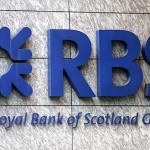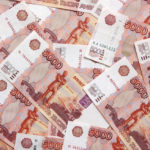 Having fallen to daily lows earlier on Thursday, British pound pared losses against the US dollar, as it became clear that retail sales in the United Kingdom unexpectedly dropped in October, which suggested that recovery was still insecure.
Having fallen to daily lows earlier on Thursday, British pound pared losses against the US dollar, as it became clear that retail sales in the United Kingdom unexpectedly dropped in October, which suggested that recovery was still insecure.
GBP/USD fell to a session low at 1.5989 at 9:35 GMT, after which consolidation followed at 1.6013, still down 0.27% for the day. Support was likely to be received at November 13th low, 1.5877, while resistance was to be met at current session high, 1.6065.
According to a report by the Office for National Statistics (ONS), retail sales in the United Kingdom declined 0.7% in October compared to September, after a month ago sales climbed 0.6%. Preliminary estimates pointed that the indicator will show no change. Annual retail sales rose 1.8% in October, below the expected 3.1% gain, after in September sales figure has been revised down to a 2.0% increase from a 2.2% increase initially.
Retail sales, excluding volatile components such as fuel sales, dropped 0.6% in October on a monthly basis, following a revised up gain of 0.8% in September. The annual performance of the index of core retail sales showed a 2.3% advance in October, following a 2.5% advance in September. Experts had projected that the indicator will increase more in October, 3.1%.
“The retail sales numbers show a disappointing momentum early in the fourth quarter and that’s weighed on the pound,” said Lee Hardman, a currency strategist at Bank of Tokyo-Mitsubishi UFJ Ltd. in London, cited by Bloomberg News. “It raises a risk to the strong trend we’ve seen but I don’t think one month’s figures are going to change the market’s opinion on the recovery. If the data continue to remain robust then that should help the pound to strengthen gradually.”
These data points came one day after the International Labour Organization (ILO) reported that the rate of unemployment in the country slowed down to 7.6% during the three months through September this year, compared to the same period in 2012, which marked the lowest level since the three months through August 2009.
Also yesterday, Bank of England (BoE), in its report on inflation, stated that unemployment rate in the United Kingdom was more likely than not to reach 7% during the third quarter of 2015. The bank had previously projected that such level would be reached in 2016. Policymakers also revised down the short-term forecasts regarding the rate of inflation. They now project that the consumer price index in the country will slow down to just below the central bank’s 2% objective by the first quarter of 2015.
The yield on UK benchmark 10-year gilts fell to 2.79% today, after having climbed as high as 2.85% on Wednesday, or the highest level since October 16th. UK gilts have lost 3.4% during this year through yesterday.
Meanwhile, the pound was gaining against the euro, as EUR/GBP cross lost 0.17% on a daily basis to trade at 0.8387 at 12:06 GMT. It became clear that Euro zones Gross Domestic Product increased barely 0.1% in the third quarter of the year on a quarterly basis in consonance with expectations, while the annual preliminary GDP figure pointed a 0.4% contraction in Q3, which missed expectations of a 0.3% drop. This result gave an additional boost to the negative outlook, already underscored by the GDP reports, released out of France, Germany and Italy.
In addition, according to the monthly bulletin of the European Central Bank (ECB), inflationary pressure in the Euro bloc will probably remain even weaker than initially projected. This report came out one week after the central bank surprisingly cut its benchmark interest rate to a new record low level of 0.25%. Bank policymakers predict that the annualized rate of inflation in the Euro zone will reach 1.4% this year, which appears to be a revision down from a 1.5% inflation, as forecast in August. In 2014 the rate of inflation will probably reach 1.5%, as has been projected in August. In 2015, according to the report, inflation will probably advance to 1.6%, while Augusts forecast pointed a 1.8% rate. These downward revisions probably reflect the current weaker economic development, the huge idle production capacity, the weaker increase in remuneration in the region, and last but not least, the heightened exchange rate of the euro.
GBP/JPY pair was advancing 0.51% to trade at 160.20 at 12:07 GMT. The sterling has appreciated 3.6% during the past three months, or the best performing currency among the 10 developed-nation currencies, which are tracked by Bloomberg Correlation-Weighted Indexes. The euro has gained 1.4%, while the US dollar has dipped 0.1% during the same period.





